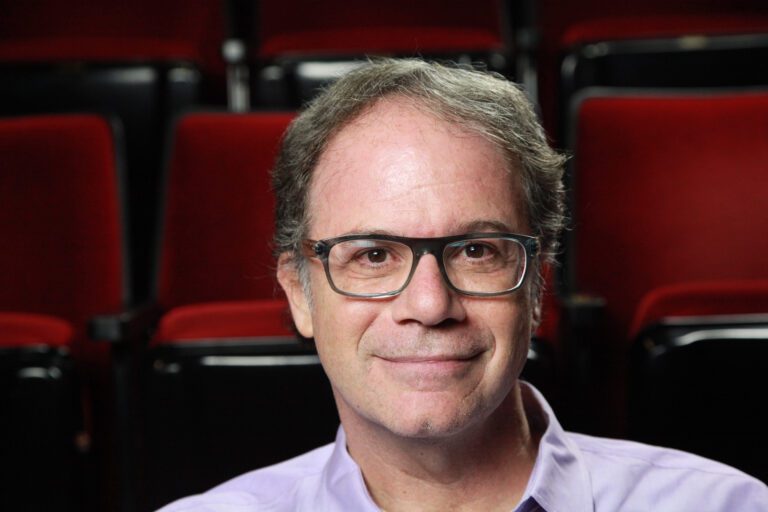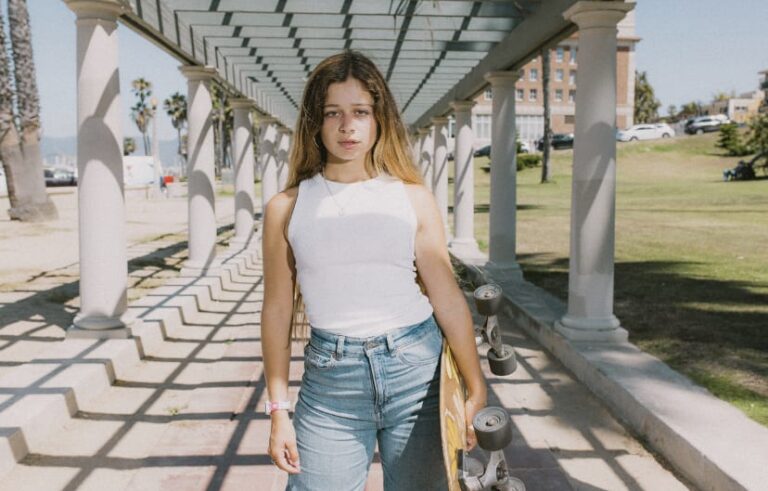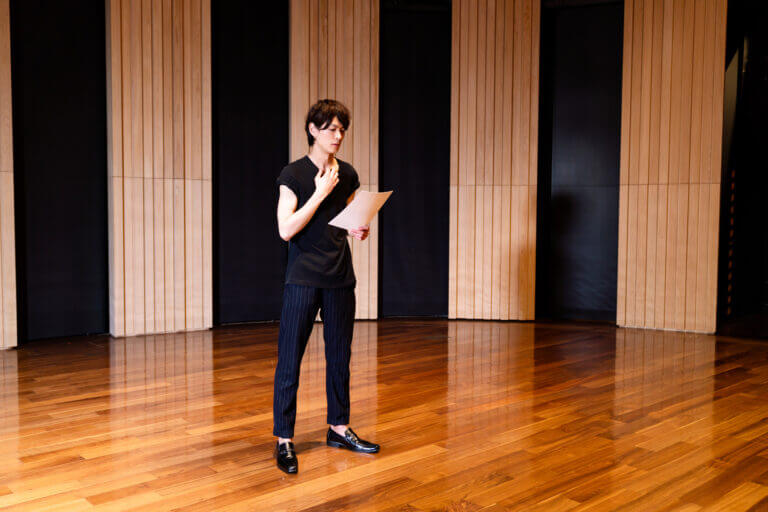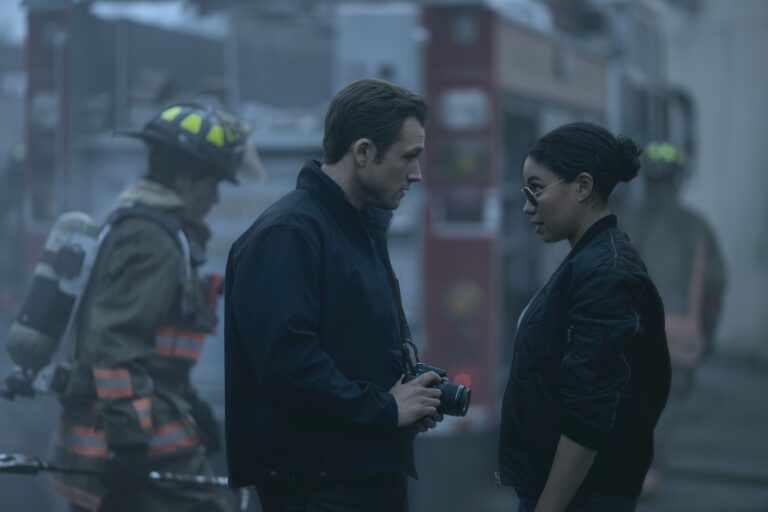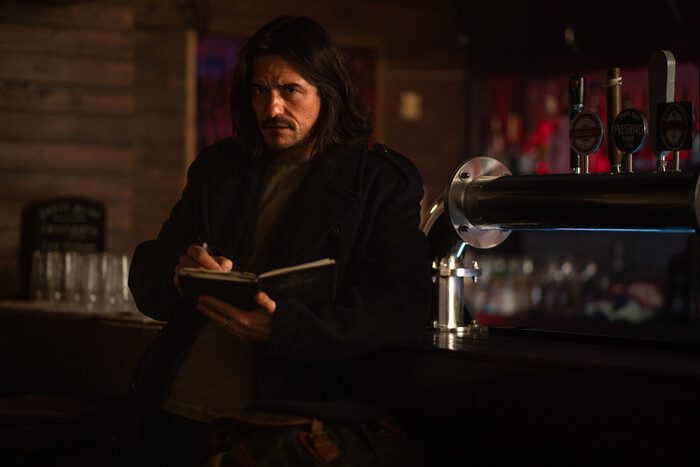Renowned Scottish casting director Kahleen Crawford is a favorite among UK directors like Ken Loach (I, Daniel Blake) and Andrew Haigh (All of Us Strangers), who regularly turn to her expertise. Her latest project is the Apple TV+ streaming series, The Buccaneers, adapted from Edith Wharton’s unfinished novel.
Set in the 1870s, the show follows the lives of five affluent young American girls navigating London’s high society, where cultures collide and friendships are tested.
With Season Two already in the works, Crawford recently shared her insights with Casting Networks. She discussed the unique challenges of casting an international series, especially amidst the backdrop of the COVID-19 pandemic, and how much she values the actor-casting-director relationship in her work.
You were brought on the show by producer Beth Willis at The Forge, for whom you cast the 2017 series The Miniaturist starring Anya Taylor-Joy. That project was a period piece based on a novel. Now you’ve re-teamed with Willis again on The Buccaneers, also a period piece based on a novel. Did you do much research into the source material before beginning the casting process?
I deliberately never read the book or watched the previous television adaptations. I only wanted to tune into (series creator) Katherine Jakeways and what her voice was bringing to the characters. I centered everything on the scripts. First, we looked at lists for [the characters of] Nan St. George and Conchita Closson.
What struck you most about this story when you began your search?
The crucial thing for me, and the thing that touches me most when I watch the show, is how modern the themes are. It’s not playing into period drama tropes. The characters don’t speak like they’re on Masterpiece Theater.
The show is very much about those women. It’s about the power and the strength of female friendship. It’s also about not ignoring the fact that people questioned their sexuality 150 years ago and that sons and daughters were in complicated dynamics with their parents, their spouses or their children. The show shines a light on all of that. Some of it is still relatively taboo to talk about today.
The Buccaneers was cast in 2021, during COVID. But a show like this depends so much on the chemistry between the characters. How do you do chemistry reads with that core group of girls during a pandemic?
We looked into chemistry testing quite extensively but it wasn’t acceptable in the United States during COVID, so that restricted our choices. In the end, we knew that Kristine Froseth and Alicia Boe [who play Nan and Conchita] knew each other, making it easier.
We knew they were friends, so we could rely on that friendship. You feel it and see it on screen. So, no, we did not end up doing any chemistry casting with those girls. There were one-to-ones with the director on Zoom, and we did a lot of the international casting by Zoom. We started to feel comfortable and confident with the performances we got from the actors.
British actress Mia Threapleton, whose character eventually befriends the American girls, is the daughter of actress Kate Winslet and director Jim Threapleton. In a world where the term “nepo baby” is tossed around, how did she come into play?
She is a young actress in her own right, but most people know Jim Threapleton’s name, so they know he is Kate Winslet’s ex-husband. We just saw her as we would anyone.
I’m not particularly interested in pursuing “nepo babies.” It’s not something I lean into, but also, I will not lean out of it. It’s not their fault. They are who they are. They just got born. Mia did a brilliant tape, and it was easy to decide because she is so talented. If she wasn’t good enough, we would not have called her back. Mia is undoubtedly earning her parts.
Were there any challenges with the casting?
The casting of Theo [the Duke of Tintagel] was offered to an actor, who then took another job instead, so we lost them. That happened early on.
We did another big search, and we got into chemistry casting because, in the U.K., there weren’t COVID complications for casting as long as we were careful. That’s how we found Matt Broome (for the role of Guy Thwarte). But with the role of Theo, we just hadn’t nailed it.
All the women, the families, the parents… were coming together. The role of Theo wasn’t quite clicking. I asked the producers if they could give me three weeks. I put another big push out, saw more people and at that point, Guy Remmers was suggested. He hadn’t done anything before – just one short film and some modeling. But I thought, “There’s
something about this guy.”
Those three weeks were the right three weeks to take because we found our guy.
The world-building on this show is so intricate and important, isn’t it?
It’s about the overall cast balance, even with day players who have only one or two scenes. You’re constantly looking at everything from above – a bird’s eye view – making sure you’re building a picture that has a sense to it but also enough color, texture and difference to engage across the board.
When you’re putting together a big group of girls or a big group of guys, and then the orbits around those groups, it’s like a house of cards. You’re at risk if one person pulls out. Sometimes, when you lose someone, everyone on the creative side starts questioning things. They start thinking, “Was that the right choice? Should we go in a different direction this time? Should we just start all over again?” Before you know it, it’s like pulling a loose thread on a sweater.
Sounds stressful!
Generally, we don’t want to be still casting leads when we’re up to production. I recently wrapped a lead deal on a Friday night, and the shoot started on Monday. We had a 140-strong cast. I kept saying to them, “I am still casting numbers 1, 2, 3, 4 and 5 when I should be casting 98, 99, 100.” This is stressful for my department.
It wasn’t quite like that on The Buccaneers, but taking that extra three weeks to go again for Theo got us to where we ought to be.
Now that the worst of COVID is over, you can do chemistry reads in person. Are the actors happy to be back in the room, or have they gotten used to the self tapes and zooms from the comfort of their homes?
The biggest thing we’re battling right now with actors in the room is that they’re not used to it anymore. They’re putting so much pressure on themselves. They’re feeling quite anxious. They’re unfamiliar with the experience of it – going into town and turning up at the studio.
Before COVID, everyone used to do it. The lucky ones would do it five times a week, and the average person would do it once a week. It’s just not happening anymore.
What’s your preference?
For me, self taping is huge for first-round casting. It’s hugely beneficial on both sides. But when it gets to being in the room for recalls, I’d much rather be in the room than over Zoom. You get something from meeting each other. You retain something about a person from meeting them in the room. People make their mark on you more personally.
Casting is like a long-term relationship with performers and their agents. There are people who I’ve been auditioning for 23 years. The more times you’ve met each other, the better you can make it for the actor. And hopefully, the easier it gets for them.
In what way?
There are some actors I’ve cast eight or nine times in big parts. Martin Compston and I are up about seven times. [I’ve cast] Gary Lewis so many times! Kate Dickie, several times. Kate Rutter, too.
I might meet an actor for a one-scene part, and I think, “God, they’re amazing.” Then they’re doing a regular role on a TV show for me two years later.
For me, it is a long relationship. I have actors coming in for auditions who are in their thirties, and now they’ve got kids, but I’ve known them since they were ten years old! So yes, it is a long relationship.
Looking to get your big break? Sign up or login to Casting Networks and land your next acting role today!
You may also like:







